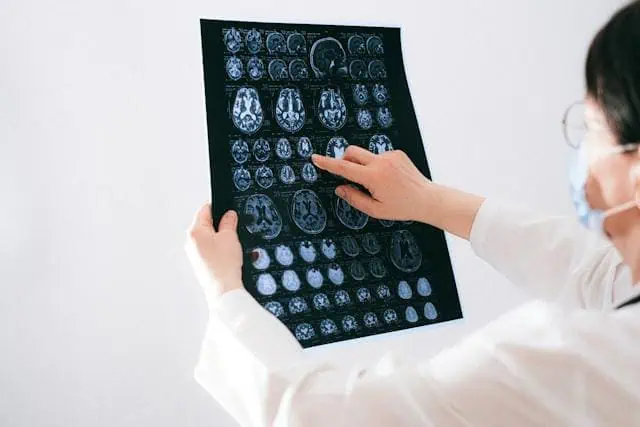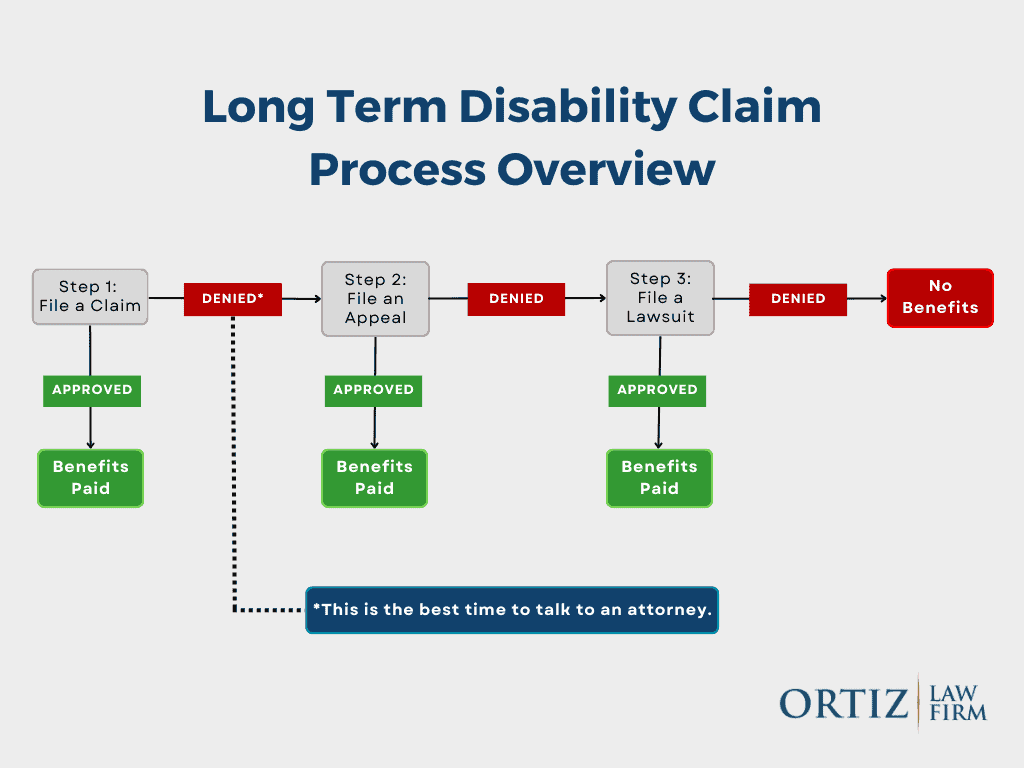On This Page[Hide][Show]
Long-term disability claims for neuromuscular disorders can be complex and overwhelming. Navigating the process requires a clear understanding of the intricacies involved. From the initial application to potential appeals, each step demands attention to detail. This blog post will provide valuable insights to help you understand and navigate long-term disability claims for neuromuscular disorders.
Understanding Neuromuscular Disorders
Neuromuscular disorders encompass a range of conditions that affect the nerves controlling voluntary muscles. These disorders can have varying degrees of impact on an individual’s ability to carry out everyday activities, including work. Understanding the nuances of neuromuscular disorders is crucial in comprehending their potential effects on long-term disability claims.
What Are Neuromuscular Disorders?
Neuromuscular disorders refer to a group of diseases that impair the functioning of muscles due to problems with the nerves that control them. These disorders can manifest in different ways, such as muscle weakness, numbness, and pain. Genetic factors, immune system abnormalities, infections, or environmental factors can cause them. Conditions like muscular dystrophy, myasthenia gravis, and amyotrophic lateral sclerosis (ALS) fall under this category.
Common Types of Neuromuscular Disorders
Among the commonly encountered neuromuscular disorders are:
- Muscular dystrophy, characterized by progressive muscle weakness and degeneration;
- Myasthenia gravis, which leads to muscle weakness and fatigue; and
- Peripheral neuropathy, which causes numbness, weakness, and pain due to nerve damage.
Each disorder presents distinct challenges and impacts on daily life and work, warranting careful consideration in the context of long-term disability claims.
Impact on Daily Life and Work
Neuromuscular disorders can significantly disrupt an individual’s daily life and occupational ability. These conditions may result in limitations in mobility, dexterity, and energy levels. Simple tasks like walking, lifting, or maintaining posture can become arduous, affecting an individual’s employability and overall quality of life.
Long-Term Disability Insurance Coverage
Long-term disability (LTD) insurance provides financial protection for individuals unable to work due to a disabling condition. This coverage offers an extended source of income replacement and ensures financial stability by providing a percentage of the individual’s pre-disability income.
Overview of Long-Term Disability Insurance
Long-term disability insurance is designed to support individuals who experience long-term disabilities that prevent them from engaging in substantial gainful activity. This ensures that they can maintain their standard of living and meet essential financial obligations by providing a percentage of the individual’s pre-disability income. LTD coverage can be obtained through employer-sponsored plans or purchased individually.
Coverage for Neuromuscular Disorders
Neuromuscular disorders, such as multiple sclerosis, muscular dystrophy, and amyotrophic lateral sclerosis (ALS), are often covered under long-term disability insurance. These conditions can cause severe limitations in mobility and daily functioning, making individuals eligible for disability benefits.

Eligibility Criteria and Filing Process
Eligibility for long-term disability benefits for neuromuscular disorders is determined based on medical evidence demonstrating the severity and impact of the condition on the individual’s ability to work. The filing process involves submitting comprehensive medical documentation to support the disability claim, including diagnostic tests, physician statements, and treatment history.
Limited Disability Benefits for Neuromuscular Disorders
While long-term disability insurance typically covers neuromuscular disorders, the benefits may be subject to certain limitations. The policy may restrict the duration and extent of benefits based on the specific diagnosis and its impact on the individual’s ability to work or require specific objective medical evidence. A sample clause in a recent policy is as follows:
“DISABILITY INCOME INSURANCE: LIMITED DISABILITY BENEFITS
For Disabilities Due to Alcohol, Drug or Substance Abuse or Addiction, Mental or Nervous Disorders or Diseases, Neuromuscular, Musculoskeletal or Soft Tissue Disorder, and Chronic Fatigue Syndrome
If You are Disabled due to:
- alcohol;
- drug or substance addiction;
- Mental or Nervous Disorders or Diseases;
- Neuromuscular, musculoskeletal or soft tissue disorder including, but not limited to, any disease or disorder of the spine or extremities and their surrounding soft tissue; including sprains and strains of joints and adjacent muscles, unless the Disability has objective evidence of:
- Seropositive Arthritis;
- Spinal Tumors, malignancy, or Vascular Malformations;
- Radiculopathies;
- Myelopathies;
- Traumatic Spinal Cord Necrosis; or
- Myopathies; or
- Chronic fatigue syndrome and related conditions.
We will limit your Disability benefits to a lifetime maximum equal to the lesser of:
- 24 months for one period of Disability during Your lifetime for any one or more, or all of the above conditions; or
- the Maximum Benefit Period.”
Medical Documentation and Evidence
Before proceeding with a long-term disability claim for a neuromuscular disorder, it is crucial to understand the significance of thorough medical documentation and evidence in substantiating your claim.
Importance of Medical Documentation
Comprehensive medical documentation serves as the backbone of your disability claim. It provides the necessary evidence to support the severity of symptoms and limitations imposed by neuromuscular disorders. Medical records should include detailed information about the diagnosis, treatment history, functional limitations, and the condition’s impact on daily activities.
Tests and Reports Needed for Claim
Essential medical evidence includes diagnostic test results such as electromyography (EMG), nerve conduction studies, muscle biopsy, genetic testing, and imaging studies like MRIs or CT scans. Additionally, reports from specialists, such as neurologists and physiatrists, outlining the prognosis, treatment plans, and functional assessments significantly strengthen the disability claim.
Working with Healthcare Providers
Collaborating closely with your healthcare providers is crucial. Requesting detailed medical reports and functional assessments can aid in presenting a comprehensive picture of how the disorder affects your ability to work and perform daily tasks. Effective communication with your medical team ensures that all pertinent information is accurately documented, supporting your claim for long-term disability benefits.
Navigating the Claims Process

Navigating through long-term disability claims for neuromuscular disorders can be a daunting process. Understanding the steps involved in the claims process is crucial for a smooth experience. Here are the key aspects to consider when navigating the claims process:
Initial Claim Submission
When initiating a long-term disability claim for a neuromuscular disorder, it’s essential to gather all relevant medical documentation to support your condition. This includes medical records, diagnostic test results, and physician statements. Clearly outline how your neuromuscular disorder impacts your ability to work. Providing a detailed and accurate account can significantly strengthen your claim.
Communicating with the Insurer
Maintaining open and transparent communication with your insurer is vital throughout the claims process. Respond promptly to requests for additional information or documentation, and record all communication, including emails and letters exchanged with the insurer. Clear and consistent communication can help ensure that your claim is processed efficiently.
Appealing a Denied Claim
If your long-term disability claim for a neuromuscular disorder is denied, you have the right to appeal the decision. Review the denial letter carefully to understand the reasons for the denial. Develop a well-structured appeal, including additional medical evidence and detailed explanations of how your condition prevents you from working. Take note of the deadlines for filing an appeal to ensure timely submission.
Seeking Legal Assistance
In complex situations or if your claim remains denied after an appeal, seeking legal assistance from an attorney experienced in disability law may be necessary. A legal professional can provide valuable guidance, review your case, and represent your interests on appeal. Their expertise can be instrumental in navigating the legal aspects of long-term disability claims for neuromuscular disorders.
The Ortiz Law Firm is dedicated to advocating for long-term disability claimants to ensure they receive the benefits they are entitled to. Our experienced team offers support and guidance throughout the appeal process, helping clients navigate the complexities of long-term disability claims for neuromuscular disorders. We can also help you file a lawsuit if you have exhausted your appeals. Contact us online or call (888) 321-8131 to schedule your free case review today.
Sources
- University of Michigan Health. “Neuromuscular Disorders.” Retrieved from: https://www.uofmhealth.org/conditions-treatments/brain-neurological-conditions/neuromuscular-disorders. Accessed on January 16, 2024.
- Cedars-Sinai. “Neuromuscular Disorders.” Retrieved from: https://www.cedars-sinai.org/health-library/diseases-and-conditions/n/neuromuscular-disorders.html. Accessed on January 16, 2024.
- Mayo Clinic. “Neuromuscular Disease.” Retrieved from: https://www.mayoclinic.org/departments-centers/neuromuscular-disease-group/overview/ovc-20443670. Accessed on January 16, 2024.
- BetterHealth Channel. “Neuromuscular Disorders.” Retrieved from: https://www.betterhealth.vic.gov.au/health/conditionsandtreatments/neuromuscular-disorders. Accessed on January 16, 2024.

